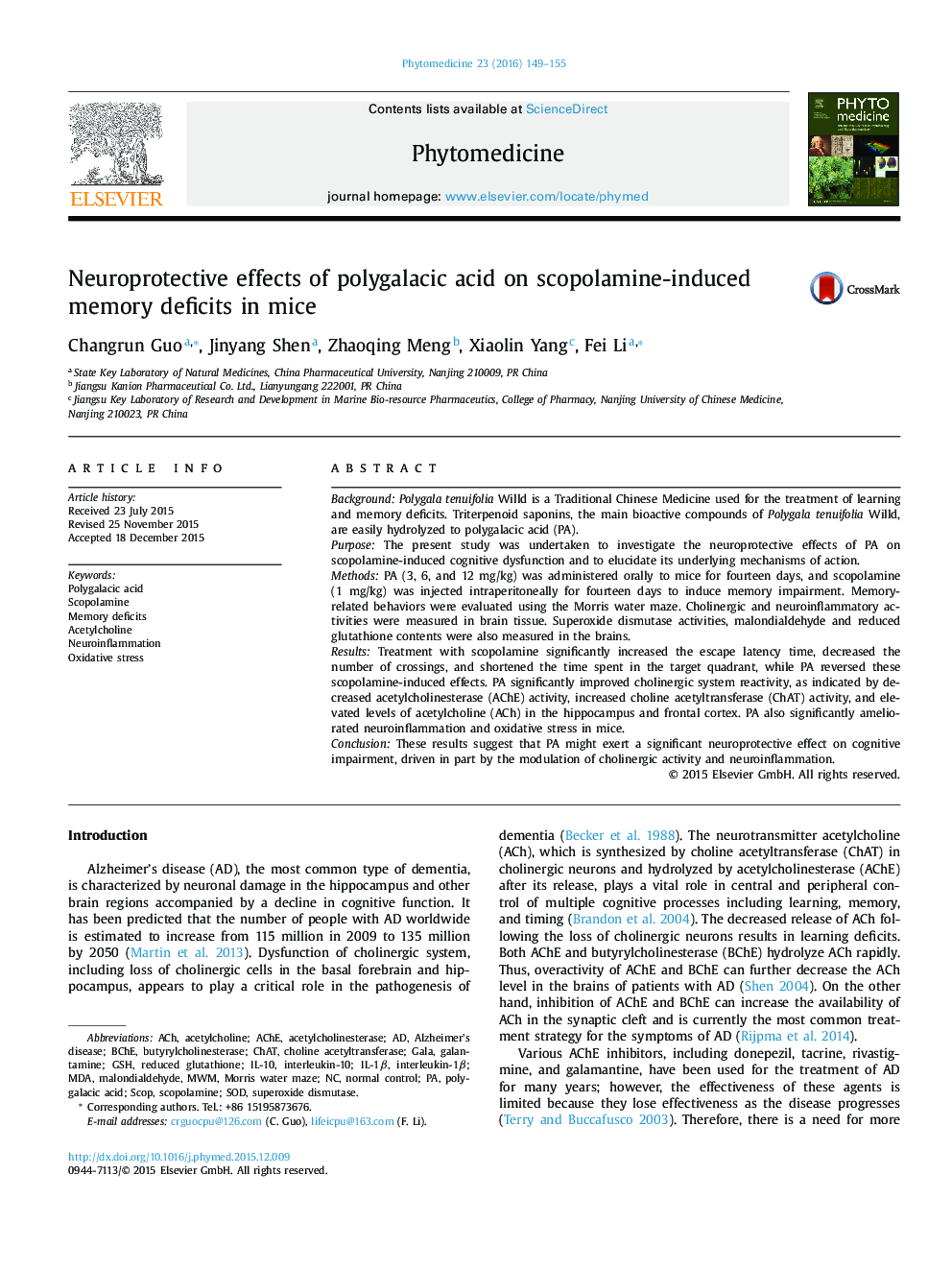| کد مقاله | کد نشریه | سال انتشار | مقاله انگلیسی | نسخه تمام متن |
|---|---|---|---|---|
| 2496364 | 1116130 | 2016 | 7 صفحه PDF | دانلود رایگان |
BackgroundPolygala tenuifolia Willd is a Traditional Chinese Medicine used for the treatment of learning and memory deficits. Triterpenoid saponins, the main bioactive compounds of Polygala tenuifolia Willd, are easily hydrolyzed to polygalacic acid (PA).PurposeThe present study was undertaken to investigate the neuroprotective effects of PA on scopolamine-induced cognitive dysfunction and to elucidate its underlying mechanisms of action.MethodsPA (3, 6, and 12 mg/kg) was administered orally to mice for fourteen days, and scopolamine (1 mg/kg) was injected intraperitoneally for fourteen days to induce memory impairment. Memory-related behaviors were evaluated using the Morris water maze. Cholinergic and neuroinflammatory activities were measured in brain tissue. Superoxide dismutase activities, malondialdehyde and reduced glutathione contents were also measured in the brains.ResultsTreatment with scopolamine significantly increased the escape latency time, decreased the number of crossings, and shortened the time spent in the target quadrant, while PA reversed these scopolamine-induced effects. PA significantly improved cholinergic system reactivity, as indicated by decreased acetylcholinesterase (AChE) activity, increased choline acetyltransferase (ChAT) activity, and elevated levels of acetylcholine (ACh) in the hippocampus and frontal cortex. PA also significantly ameliorated neuroinflammation and oxidative stress in mice.ConclusionThese results suggest that PA might exert a significant neuroprotective effect on cognitive impairment, driven in part by the modulation of cholinergic activity and neuroinflammation.
Figure optionsDownload high-quality image (151 K)Download as PowerPoint slide
Journal: Phytomedicine - Volume 23, Issue 2, 15 February 2016, Pages 149–155
